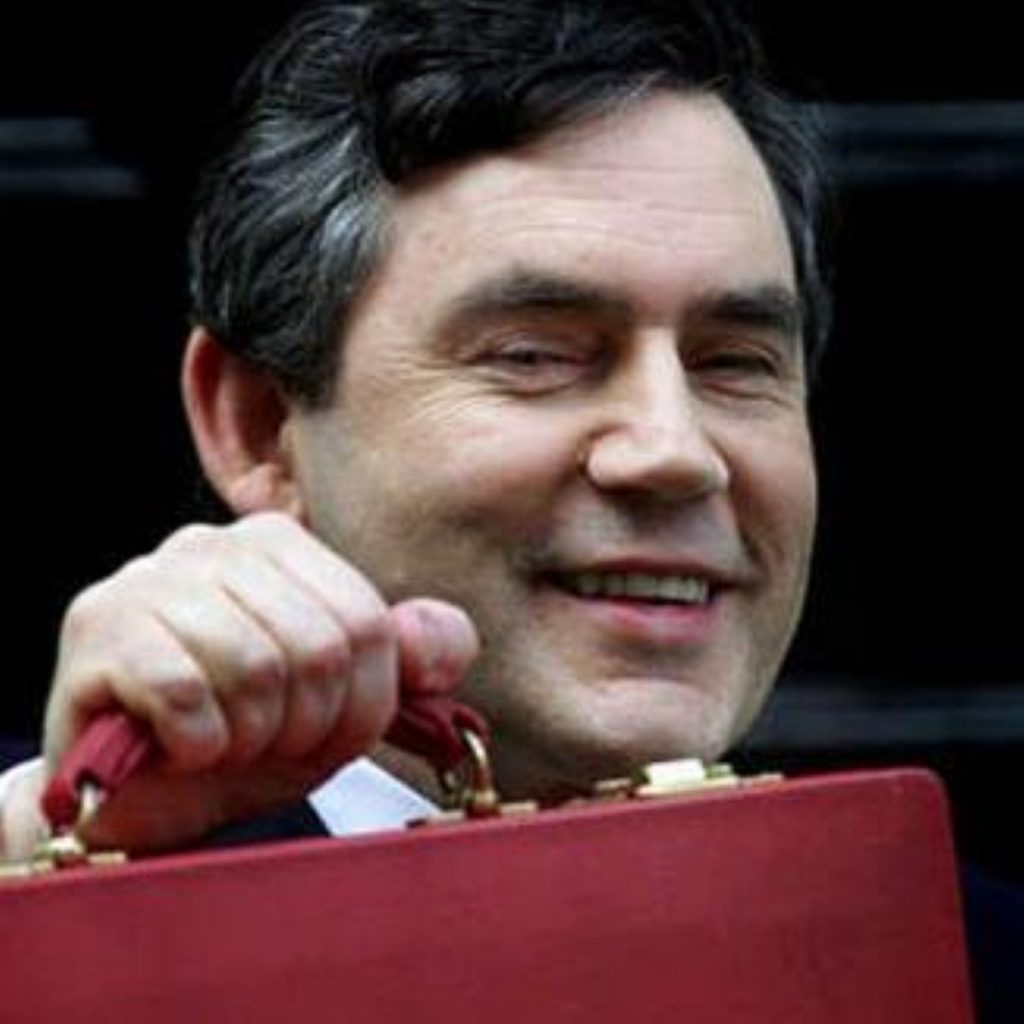Opinion Former PBR submissions
Gordon Brown will tomorrow deliver his annual pre-Budget report (PBR), setting out his forecasts for the economy and flagging up any possible changes in next year’s Budget.
The report was first introduced by Labour in 1997, but builds on the legal requirement for all chancellors to deliver two economic statements to parliament every year.
Although major announcement are reserved for the March Budget, the PBR is a way of giving advance notice of new taxation, benefits, spending or borrowing policies.
Below, politics.co.uk’s opinion formers have outlined what they hope to get from Mr Brown’s statement tomorrow, which is expected to be his last as chancellor.


Alcohol Concern: Brown must set targets for alcohol treatment
Alcohol Concern has called on the chancellor to introduce a new target on providing treatment for alcohol misuse.
The charity estimates that alcohol misuse, which damages individuals, families, communities and the economy, costs the economy about £6.4 billion a year.
Ahead of tomorrow’s pre-Budget report, Alcohol Concern argues that drawing up a public service agreement (PSA) target could encourage local authorities to extend alcohol intervention treatments.
Pilot schemes in Dudley and Walsall showed that reoffending rates fell when criminals were offered such help, it says.
In addition, the charity wants a PSA to ensure patients are treated quickly and effectively. It cites a government survey of drug action team staff which revealed a “very large gap” between the alcohol treatment available and demand.
Campaigners: Chancellor must extend winter fuel allowances
A coalition of campaign groups have called for further support to help with the cost of fuel for low income households this winter.
The chief executives of Energwatch, National Energy Action, Child Poverty Action Group, Citizens Advice, the National Consumer Council and Disability Alliance have asked the chancellor to extend the winter fuel allowance beyond pensioners.
With energy bills now averaging £1,000 a year, they are concerned about an increasing number of household who will have to spend more than ten per cent of their income on fuel but do not qualify for the government support.
The groups believe extending the payments will save the Treasury money elsewhere.
CaSE: Brown must pay science teachers more
The Campaign for Science and Engineering (CaSE) is calling for more investment to encourage physics and chemistry graduates to consider a career in education, ahead of tomorrow’s pre-Budget report.
Director Peter Cotgreave said: “Gordon Brown’s admirable statements in the Budget about increasing the numbers of teachers and students in physical sciences need to be fleshed out with more specific detail.
“He must start by saying that he recognises the market need to pay physics and chemistry teachers in schools more.”
CaSE would also like to see reforms to the research assessment exercise (RAE) to reduce the level of central control and allow the university system to take more risks.
Mr Cotgreave also called on the chancellor to deliver on a promise to reform medical research funding and to empower scientists in the NHS to improve the average standard of research.
CML: Home-owing poor need more government support
The Council of Mortgage Lenders (CML) has called for more help for struggling home-owners in the chancellor’s pre-Budget report tomorrow.
Research published by the council reveals that more than half the UK’s poor are home-owners, but warns the government’s safety-net measures for poorer households are strongly tilted towards tenants.
The CML would like Gordon Brown to increase the maximum sum eligible for income support for mortgage interest.
The current threshold of £100,000 was set in 1995, meaning the overall level of support available for home-owners is currently at its lowest level in real terms for over 20 years.
CML head of research and information Bob Pannell said: “Home-ownership is far and away the most popular tenure in the UK.
“But it is surprising that at a time when the government is promoting the wider benefits of home-ownership, the safety-nets it has in place to help struggling home-owners are being neglected.”
CPAG: Employment alone will not end child poverty
The chancellor must do more to help families in low paid work, the Child Poverty Action Group (CPAG) has warned ahead of Gordon Brown’s pre-Budget report.
The campaigners urged the chancellor to recognise that low pay meant working families could remain trapped in poverty, citing research showing half of all children living in poverty have at least one parent in paid work.
Chief executive Kate Green said: “Work can help many families out of poverty, but it’s not always the answer. Many jobs pay too little and for some families, like parents caring for disabled children, work may not be an option.”
To help families out of poverty, CPAG wants younger children to receive the same rate of child benefit as the eldest child. The charity claims this would lift at least 250,000 children out of poverty.
FPB: Brown must rethink the minimum wage
The Forum for Private Business (FPB) has called on Gordon Brown to reform the minimum wage (NMW) to relieve the burden on small firms.
In its submission to tomorrow’s pre-Budget report, the FPB, which represents around 25,000 small and medium-sized firms in the UK, urges the chancellor to link the NMW with prices.
Chief executive Nick Golding said “The increases have been well above earnings growth, and periods between increases are too short. The level and rate of change in the NMW is hampering competitiveness and job creation amongst smaller firms.”
The FBR would also like to see the chancellor announce the return of the nil rate starting band on corporation tax for the first £10,000 of profits.
In addition, it wants an end to tax relief on low-value goods improved from the Channel Islands, which it believes disadvantage small firms.

